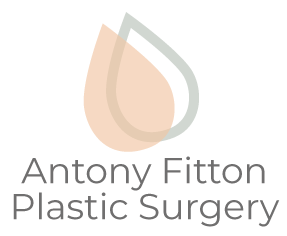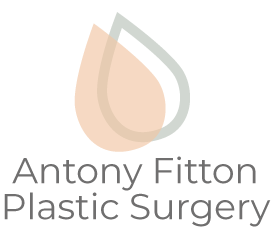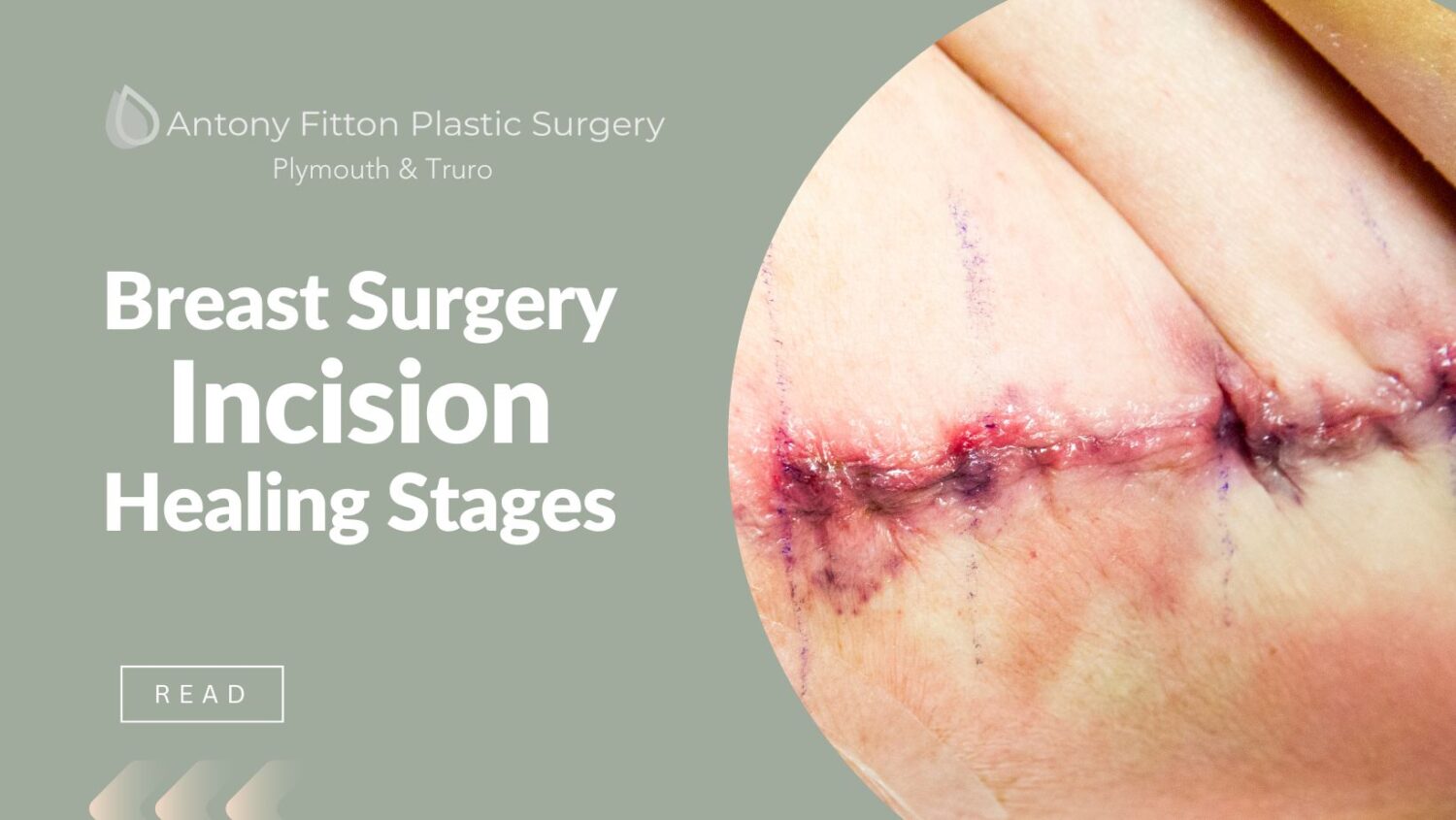
Breast Surgery Incision Healing Stages
- 0% Finance Available
- Consultations and treatments are available at either the Nuffield Health Hospital, Plymouth or the Duchy Hospital, Truro
- Care Quality Commission Regulated
- GMC Specialist Registered Surgeon
- BAPRAS, BAAPS and BSSH member
- Registered MD
Undergoing surgery of any kind is a traumatic experience, and your time spent healing can be painful, daunting, and stressful. Below we aim to put your mind at rest and explain what you can expect to experience.
The healing process of your Breast Surgery Incision typically goes through 3 stages:
1. Inflammatory Phase:
This phase occurs immediately after breast surgery and lasts for a few days. The incision site may appear red, swollen, and sensitive.
2. Proliferative Phase:
Over the next several weeks, the body starts to produce collagen, which helps to strengthen the scar tissue. During this phase, the scar may become raised, firm, and pink or reddish.
3. Maturation Phase:
This phase can last for months to years. The scar will gradually flatten, and soften, and its colour may lighten. It might also become less noticeable over time.
Inflammatory Phase
The inflammatory phase begins immediately following your surgical procedure and is characterised by swelling, redness, and pain.
This stage can last from a few days up to six weeks, and it is during this time that your body is doing all it can to protect the affected area. If you have recently undergone surgery, dramatic changes in appearance coupled with bruising and swelling can lead to you embracing quiet isolation at home. This is quite normal and shouldn’t lead to it being a stressful situation.
During the inflammatory phase, the bleeding stops and white blood cells come to the site and fight any infection that may appear.
At Antony Fitton Plastic Surgery, we encourage you to move as soon as you can. This will substantially accelerate the next stages of the healing process.
Our patients comment on how helpful and positive the staff are and that their experience has been one of huge relief.
“Thank you so much for your expertise, huge care and attention. I am thrilled with the results!” LH

Proliferative Phase
This second phase of repair is approximately three to six weeks post-surgery and can remain at this stage for up to a year.
To ‘proliferate’ is to grow by rapid production. This is what your body is going through during this stage of recovery and any inflammation will subside. New tissue forms, with the edges of your wound pulling back together. This new tissue is fragile and susceptible to injury so it is imperative to be careful.
Any remaining bruising and limited range of motion can bring about a sense of ‘buyer’s remorse’, with patients questioning why they decided to undergo surgery in the first place.
- I thought I’d be better by now.
- When can I get back to work?
- What about exercise?
- Is this my final result?
The new tissue is very susceptible to injury and stagnancy, and restricting movement can form adhesions. These adhesions can limit the range of motion when movement is eventually reintroduced, so appropriate mobilisation of the tissue during this stage is crucial.
At Antony Fitton Plastic Surgery, we encourage you to move as soon as you can. This will substantially accelerate the next stages of the healing process.
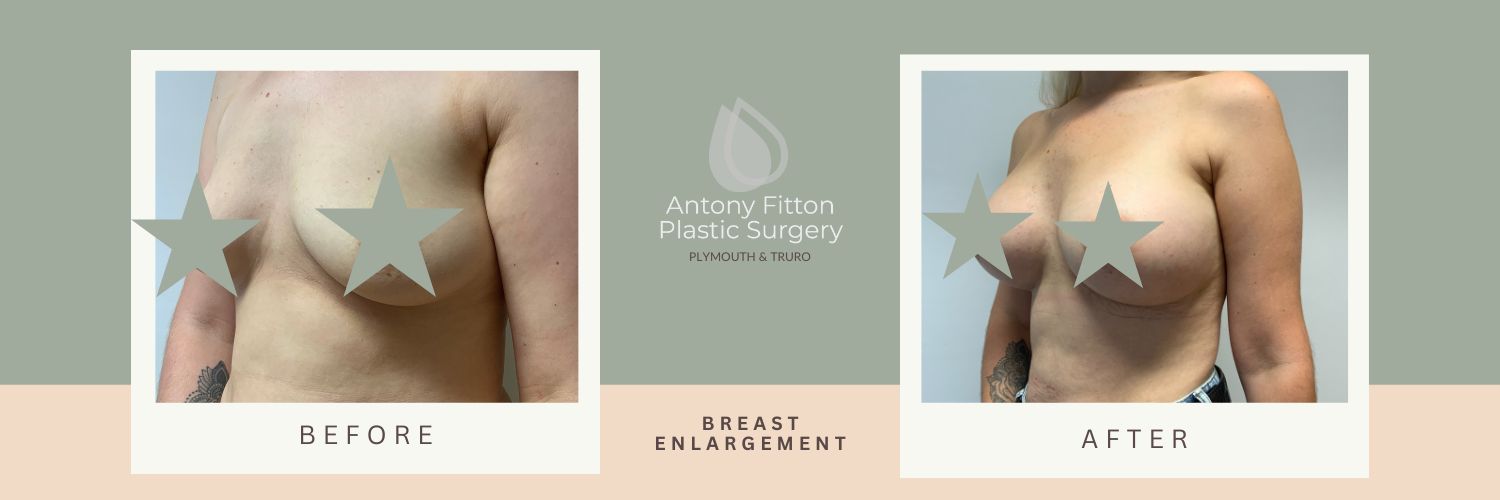
At Antony Fitton Plastic Surgery, we encourage you to move as soon as you can. This will substantially accelerate the stages of the healing process.
Maturation Phase
The maturation phase can continue from several months to several years. During this stage, the new tissue organises itself and matures.
Even when the body has fully healed, the alarm in your brain may still be turned on, and your body can continue working to heal the area of trauma. It is during this stage that these tissues may become stuck – your pain goes away, but you can be left with persisting symptoms that limit your range of motion and aggravate your mental well-being. This is when many people question when, or even if, they will ever be “back to normal.”
The answer to that question has a caveat – your body is different now. Your skin, muscles, and sometimes even your bones are all in new places, in positions they have never been before. Because of this, “back to normal” really translates to “discovering your new normal.”
Helping you discover your new normal is your therapist’s primary goal. Maturation can be difficult to push through, but we will give you all the help you require to get comfortable with the new you.

How do I know if my surgical incision is healing properly?
Keeping track of your wound and the stage of healing it’s in can help to identify whether it’s a healing or non-healing wound. Signs of healing include:
- Clotting blood at the wound
- Scabbing
- Swelling
- Scarring
Sometimes a wound takes a long time to heal or gets infected and stops the healing process altogether. It’s important to pay attention to the stages of wound healing so you know whether your wound is going in the right direction.
For a no-obligation quote
For a no-obligation quote, tailored specifically to you, please book in for your consultation with Mr Fitton. Your requirements will be discussed in full confidence in a friendly and relaxed atmosphere.
Following your consultation, the price you are quoted includes everything and there are no extra or hidden costs. Advice, treatment and aftercare are all part of our package to ensure your experience is positive from beginning to end.
Summary
Managing your expectations about plastic surgery is important regardless of which procedure you wish to have done. It’s critical to have realistic expectations about plastic surgery but to also ensure you are on the same page as your surgeon.
To find out more about having a treatment, book your no-obligation consultation. You will meet with Antony Fitton and receive expert advice tailored to your needs.
Please call us on 07494 250277 or book your consultation using our online form.
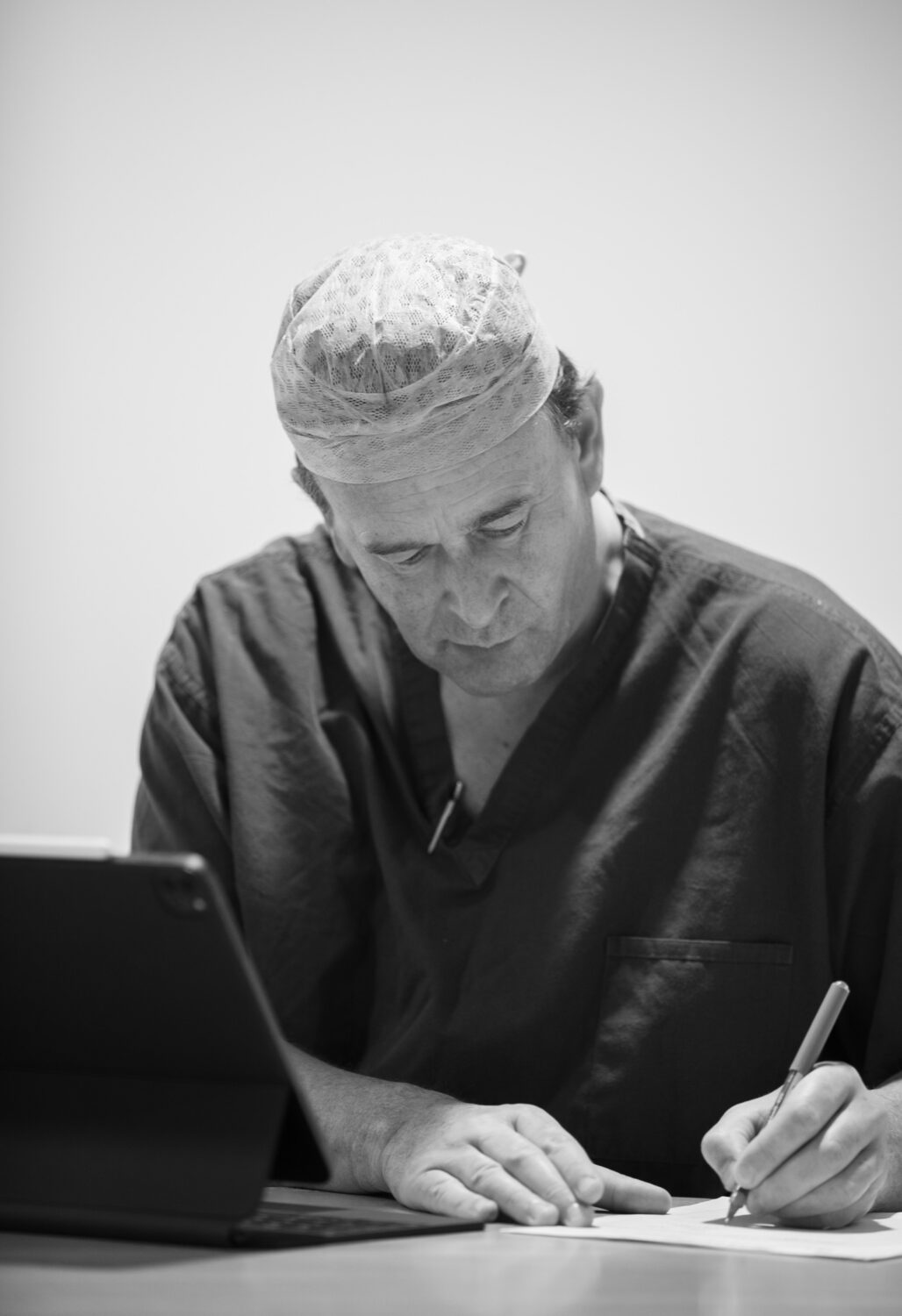
About your Plastic Surgeon: Mr Antony Fitton
MB, BS(hons)., MD., FRCS(eng)., FRCS(plast).
Mr Antony R Fitton qualified at the Royal London Hospital in 1989 with distinction in Surgery. He holds a MB, BS(hons)., MD., FRCS(eng). and FRCS(plast). (Fellowship at the Royal College of Surgeons).
He is a member of BAPRAS (British Association for Plastic, Reconstructive and Aesthetic Surgeons), BAAPS (British Association for Aesthetic Plastic Surgeons), BSSH (British Society for Surgery of the Hand).
Mr Fitton has received the Paton & Masser Award and the CM Matthews Award from the Royal College of Surgeons of England or his research in nerve injury.
Mr Fitton is licensed as Plastic and Reconstructive Surgeon by the GMC.
Life-changing result
"I just wanted to thank you (and your team) for the life-changing result of my top surgery. This will provide me with the freedom that I’m excited to enjoy, including being able to go swimming and actually staying cool in summer! All jokes aside, you have helped to mark a new chapter in my life, for which I am incredibly grateful… ALL the best."
Our appearance has an impact on how others perceive us. We are experts in creating an improved version of you. Click on a procedure below for more information.
Body surgery (or contouring) can involve all or one of the following, with prime focus on areas such as the buttocks, tummy, thighs, arms, and breasts. Click on the links below for more information.
There are several different types of hand surgery but all aim to restore functionality while making the hand look as normal as possible. Click on the links below for more information.

Should I Lose Weight Before a Tummy Tuck?
Discover if you should I lose weight before a tummy tuck and if it can enhance your surgery results
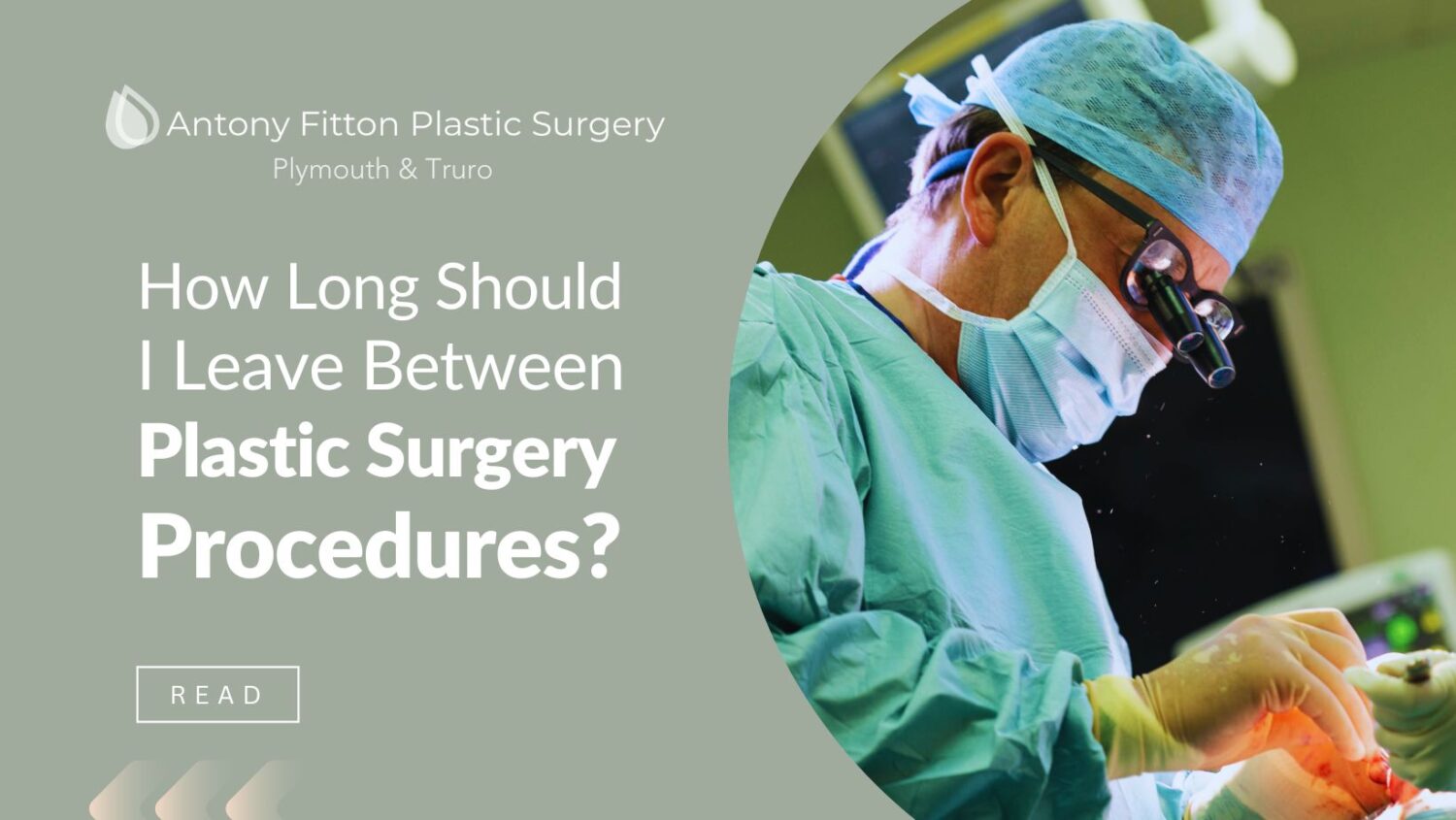
How Long Should I Leave Between Plastic Surgery Procedures?
Discover how long you should leave between plastic surgery procedures for optimal recovery and effec
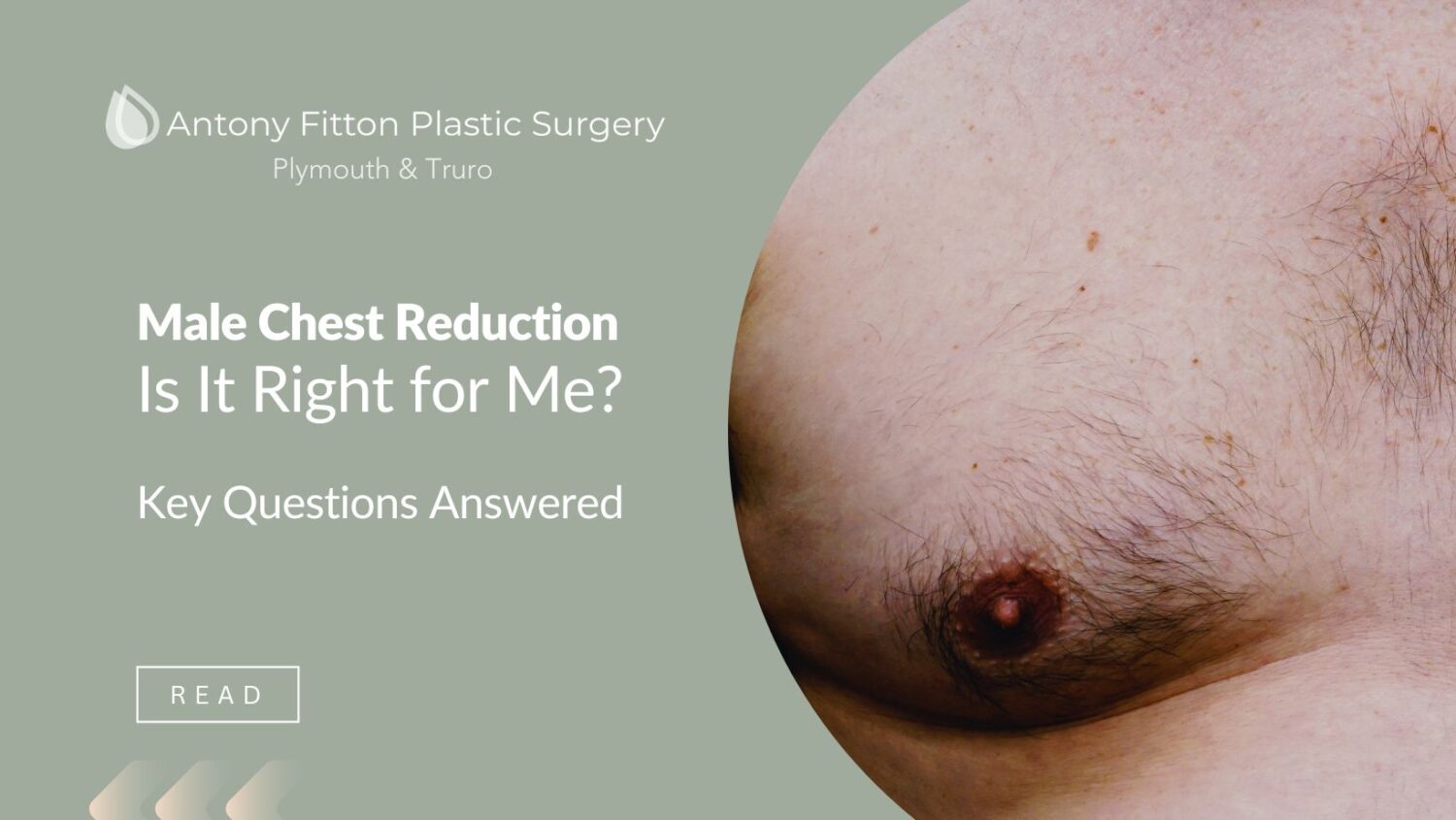
Is Male Chest Reduction Right for Me? Key Questions Answered
Is Male Chest Reduction Right for You? This blog answers crucial questions on gynecomastia surgery s



